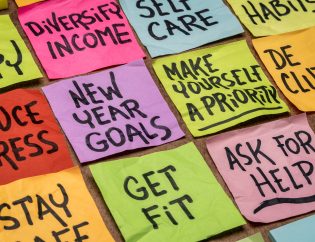
October 10 is recognized globally as World Mental Health Day, a day dedicated to shining a light on mental health, starting conversations, and reminding ourselves that healing is not only possible, but worthwhile. If you’re a woman on the recovery journey from substance abuse, this date is a meaningful checkpoint: a reminder that your mental health and your future deserve attention and care.
In this blog, we focus on career planning in recovery, with the goal of helping you rediscover your strengths, rebuild your confidence, and take actionable steps toward a job that aligns with the new you.
Recovery is more than giving up substances; it’s about rebuilding a life you’re proud of. That includes envisioning meaningful work, navigating job search strategies, and setting goals that reflect both where you’ve been and where you’re going. Let’s map out a career plan that honors your recovery and propels you into a future you can look forward to.
Career Planning in Recovery: Figuring Out What You Actually Want to Do
Career planning in recovery isn’t about finding any job to prove something to yourself or others. It’s about slowing down, taking inventory of your strengths, and choosing a direction that fits the life you’re building, not the life you’re leaving behind.
Start by asking yourself these questions:
- What am I naturally good at?
- What kind of environment helps me stay sober and grounded?
Maybe you’re great with people. Maybe you like structure. Maybe you like working with your hands. Maybe you don’t like sitting at a desk all day. Maybe you prefer working with animals over people. Maybe you enjoy working outside. Maybe you like cooking. Maybe you like helping people. Maybe you can’t stand long hours or high-pressure workplaces right now, and that’s okay. The goal of this exercise isn’t perfection, it’s clarity.
Break it down into tiny steps:
- Short-term goal: Get a job that pays the bills and supports stability (part-time, low stress, routine-friendly).
- Long-term goal: Build toward a job or career you actually care about.
Your past doesn’t erase all your skills. Truthfully, people in recovery tend to be gritty, resourceful, and emotionally aware…qualities you can’t teach in a classroom. You’ve already done something harder than any job interview: you changed your life.
Getting Your Mind Ready Before the Job Hunt
Before you send a single resume, you have to deal with the internal voice that whispers, “who do you think you are?”
Shame is loud. And job searching may poke every insecurity you’ve ever had. But, you are allowed to want more for yourself.
A few things to remember:
- Your recovery comes first, always.
- A paycheck is not worth your sobriety.
- You don’t have to explain your whole life story to anyone.
Focus on building confidence one tiny win at a time:
- Practice positive self-talk (even if it feels dumb at first). For example, when applying for jobs, try saying, “I have valuable skills to offer. This job could be a great next step for me, and I can handle the challenges ahead.” Or, “I can help make a difference at this company.”
- Set boundaries - “No, I’m not staying late,” is a full sentence.
And remember, if a workplace triggers cravings, stress, or old habits, that’s not a dream job. You need a job that supports your recovery, not one that tries to test it.
Job Search Strategies That Work
Now it’s time for the part most people dread: the job hunt. But this doesn’t have to be scary. With the right steps, tools, and mindset, you can make the process manageable, and even empowering. Here’s a detailed guide to get started.
- Create or update your LinkedIn profile.
- Be sure to include a professional-looking photo (a simple headshot is fine).
- List your skills and experiences (don’t overthink gaps - highlight strengths and volunteer work)
- Add a brief headline that says who you are and what you bring to the table.
- Use online job boards like Indeed, Glassdoor, and ZipRecruiter to make job searching easier. You can:
- Search by location, salary, or remote opportunities
- Set up alerts so new jobs show up in your email
- Apply directly with your resume
- Make a strong but simple resume. You don’t need fancy software. Easy programs include:
- Canva (has free templates and layouts)
- Microsoft Word (classic and reliable)
- Google Docs (quick and shareable)
Focus on clear formatting, bullet points for responsibilities, and short, confident descriptions. Your resume doesn’t have to explain everything. If you have employment gaps, use this simple line, “I spent time focusing on personal growth.”
- Prepare for interviews. It’s normal to be nervous. Practice with a friend or family member or even in front of a mirror. Here are some common questions and tips for answering:
- “Tell me about yourself.” Keep your answer professional, highlight strengths, and your readiness to work.
- “Why do you want to work here?” Mention interest in the company’s mission and your skills.
- “What are your strengths and weaknesses?” Be honest and confident about your strengths. When discussing your weaknesses, pick something you’re actively improving.
- Dress for success. You don’t need to break the bank, but investing in a few pieces of business casual clothing can boost confidence. Even one good blazer, blouse, and a pair of slacks can make a big difference in interviews.
- Leverage supportive programs. There are workforce programs designed specifically for women in recovery or re-entering the workforce. These programs can help with:
- Resume building
- Interview prep
- Job placement
Local nonprofits or recovery centers often have partnerships with these services. Ask your counselor or support network.
- Network. Start with people who already know you, friends, family, sponsors, and counselors. Say something like, “I’m exploring new job opportunities. If you hear of anything, please let me know.”
Don’t pressure yourself to land the dream job immediately. Each application, each interview, each connection is a step forward. Recovery has already taught you resilience. Now it’s time to use it in your career.
Moving Forward with Career Planning in Recovery
Rebuilding your career while navigating recovery is a bold, empowering step, and it’s completely possible. By taking small, practical steps, and being gentle with yourself along the way, you can find work that supports your growth, stability, and future goals. Remember, your skills, resilience, and your lived experiences are assets that set you apart.
If you’re a woman working through substance abuse recovery and need extra support, Twin Branch Wellness & Recovery for Women is here to help. We offer compassionate care, evidence-based programs, and a supportive community to help women develop the skills, confidence, and resilience to succeed after recovery. You don’t have to face this journey alone. Recovery is possible, and a joyful, fulfilling life is waiting for you.











